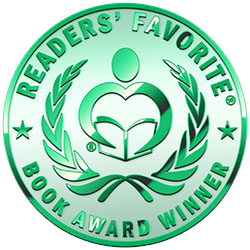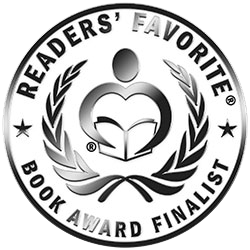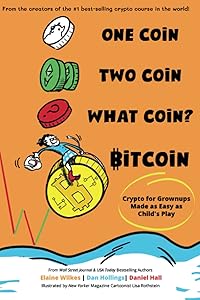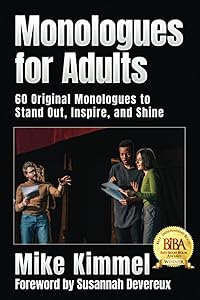150 Award Genres
Children
- Children - Action
- Children - Adventure
- Children - Animals
- Children - Audiobook
- Children - Christian
- Children - Coming of Age
- Children - Concept
- Children - Educational
- Children - Fable
- Children - Fantasy/Sci-Fi
- Children - General
- Children - Grade 4th-6th
- Children - Grade K-3rd
- Children - Mystery
- Children - Mythology/Fairy Tale
- Children - Non-Fiction
- Children - Picture Book
- Children - Preschool
- Children - Preteen
- Children - Religious Theme
- Children - Social Issues
Christian
- Christian - Amish
- Christian - Biblical Counseling
- Christian - Devotion/Study
- Christian - Fantasy/Sci-Fi
- Christian - Fiction
- Christian - General
- Christian - Historical Fiction
- Christian - Living
- Christian - Non-Fiction
- Christian - Romance - Contemporary
- Christian - Romance - General
- Christian - Romance - Historical
- Christian - Thriller
Fiction
- Fiction - Action
- Fiction - Adventure
- Fiction - Animals
- Fiction - Anthology
- Fiction - Audiobook
- Fiction - Chick Lit
- Fiction - Crime
- Fiction - Cultural
- Fiction - Drama
- Fiction - Dystopia
- Fiction - Fantasy - Epic
- Fiction - Fantasy - General
- Fiction - Fantasy - Urban
- Fiction - General
- Fiction - Graphic Novel/Comic
- Fiction - Historical - Event/Era
- Fiction - Historical - Personage
- Fiction - Holiday
- Fiction - Horror
- Fiction - Humor/Comedy
- Fiction - Inspirational
- Fiction - Intrigue
- Fiction - LGBTQ
- Fiction - Literary
- Fiction - Magic/Wizardry
- Fiction - Military
- Fiction - Mystery - General
- Fiction - Mystery - Historical
- Fiction - Mystery - Legal
- Fiction - Mystery - Murder
- Fiction - Mystery - Sleuth
- Fiction - Mythology
- Fiction - New Adult
- Fiction - Paranormal
- Fiction - Realistic
- Fiction - Religious Theme
- Fiction - Science Fiction
- Fiction - Short Story/Novela
- Fiction - Social Issues
- Fiction - Southern
- Fiction - Sports
- Fiction - Supernatural
- Fiction - Suspense
- Fiction - Tall Tale
- Fiction - Thriller - Conspiracy
- Fiction - Thriller - Environmental
- Fiction - Thriller - Espionage
- Fiction - Thriller - General
- Fiction - Thriller - Legal
- Fiction - Thriller - Medical
- Fiction - Thriller - Political
- Fiction - Thriller - Psychological
- Fiction - Thriller - Terrorist
- Fiction - Time Travel
- Fiction - Urban
- Fiction - Visionary
- Fiction - Western
- Fiction - Womens
Non-Fiction
- Non-Fiction - Adventure
- Non-Fiction - Animals
- Non-Fiction - Anthology
- Non-Fiction - Art/Photography
- Non-Fiction - Audiobook
- Non-Fiction - Autobiography
- Non-Fiction - Biography
- Non-Fiction - Business/Finance
- Non-Fiction - Cooking/Food
- Non-Fiction - Cultural
- Non-Fiction - Drama
- Non-Fiction - Education
- Non-Fiction - Environment
- Non-Fiction - Genealogy
- Non-Fiction - General
- Non-Fiction - Gov/Politics
- Non-Fiction - Grief/Hardship
- Non-Fiction - Health - Fitness
- Non-Fiction - Health - Medical
- Non-Fiction - Historical
- Non-Fiction - Hobby
- Non-Fiction - Home/Crafts
- Non-Fiction - Humor/Comedy
- Non-Fiction - Inspirational
- Non-Fiction - LGBTQ
- Non-Fiction - Marketing
- Non-Fiction - Memoir
- Non-Fiction - Military
- Non-Fiction - Motivational
- Non-Fiction - Music/Entertainment
- Non-Fiction - New Age
- Non-Fiction - Occupational
- Non-Fiction - Parenting
- Non-Fiction - Relationships
- Non-Fiction - Religion/Philosophy
- Non-Fiction - Retirement
- Non-Fiction - Science/Technology
- Non-Fiction - Self Help
- Non-Fiction - Short Story/Novela
- Non-Fiction - Social Issues
- Non-Fiction - Spiritual/Supernatural
- Non-Fiction - Sports
- Non-Fiction - Travel
- Non-Fiction - True Crime
- Non-Fiction - Womens
- Non-Fiction - Writing/Publishing
Poetry
Romance
Young Adult
- Young Adult - Action
- Young Adult - Adventure
- Young Adult - Coming of Age
- Young Adult - Fantasy - Epic
- Young Adult - Fantasy - General
- Young Adult - Fantasy - Urban
- Young Adult - General
- Young Adult - Horror
- Young Adult - Mystery
- Young Adult - Mythology/Fairy Tale
- Young Adult - Non-Fiction
- Young Adult - Paranormal
- Young Adult - Religious Theme
- Young Adult - Romance
- Young Adult - Sci-Fi
- Young Adult - Social Issues
- Young Adult - Thriller
Illustration Award
Recommend this book:
Hair Loss
Options for Restoration & Reversal
Gustavo J Gomez, Ph.D.

2023 Honorable Mention
436 Pages
Check current price
Non-Fiction - Education

Losing a few strands of hair when you comb is usually no cause for alarm, yet many people find it worrisome and regard it as a dermatological affliction that requires a medical examination. In this second edition of his book Hair Loss: Options for Restoration and Reversal, Doctor Gustavo J. Gomez Ph.D. gives an in-depth medical perspective about what is important in the field of hair loss, as well as the many restorative treatments. The book begins by orienting readers on the physiology of hair growth and addresses male and female hair loss thoroughly. It also provides a historical perspective on hair loss treatments as well as the contributing factors. Finally, the book reviews the latest trends in restoration and transplantation techniques as well as alternative methods for correcting hair loss. The book concludes by examining possible trends.
The skinhead look is now a popular fad for those who are losing their hair, but it isn’t the preferred solution for those who find hair loss and baldness to be a challenge. Many of those who are experiencing hair loss become susceptible to the latest marketing gimmicks and resort to remedies that often yield limited results. Gustavo J. Gomez has provided an invaluable guide that equips you with the necessary information about hair loss. Suffering from hair loss is bad enough; you don’t deserve to be duped by costly and ineffective medical treatments. This book is a worthwhile investment when it comes to selecting the best option for treatment. Hair Loss helps to save you time by informing readers how to safeguard their financial resources, health, and hair. This is the only book you will need to tell you everything you need to know about hair loss intervention.
Recommend this book:
Me Power
LaNysha T. Adams

2023 Honorable Mention
252 Pages
Check current price
Non-Fiction - Education

Me Power by LaNysha T. Adams, Ph.D. is a self-help book that delivers on many different levels. As readers, we get an immediate front-row seat in one of the most crucial moments of the author's life. A singular moment that might break others in half and discourage them from their long-term goal only fueled her desire to get to the top of her educational mountain. We not only become privy to her path to success but also the stories of many others, from their low points to their crowning achievements. Reading Me Power will leave you uplifted and inspired.
Me Power by LaNysha T. Adams is the voice in the back of your mind. The right one, the one that is educated and hears all your inner doubts and self-criticism and slays them, putting them into the deepest graveyards. The narration is a much-needed balm that alternates between intellectual dialogue with facts and quotes to being your oldest friend and confidante. Adams finds the perfect middle ground to tell her story, give us the truth, and help us to uncover our own “Me Power.” Page 86 delivers one of my favorite quotes: “You do not become who you are from one single event. You’re the product of your past, present, and future selves.” This is the perfect book for someone looking to find their true self, which in the end, is all of us. Trust me when I say you don’t want to miss out on this book!
Recommend this book:
The Accomplice
The Invisible Disability of FASD
Melissa Jacobus

2023 Bronze Medal
286 Pages
Check current price
Non-Fiction - Education

Author Melissa Jacobus has raised two adopted children, both diagnosed with fetal alcohol spectrum disorder (FASD), an invisible but preventable developmental disability. FASD is caused when a mother consumes alcohol during her pregnancy which can present in the child in various ways. The main factor is that FASD sufferers can fool others because they can appear credible, believable, and mature. However, adults with FASD can't make good choices due to poor judgment, suggestibility, and limited understanding of the consequences of their actions and they will always need a parent to advocate for them. In The Accomplice, we see the battles a parent faces looking out for these adult children who have the legal rights of adults but no capability in taking care of themselves, and how this legal adult status limits parental rights and the assistance they can give to those in their care.
The biggest challenge for parents and people with FASD is ignorance. The ongoing challenge of educating people about a disability that people can't see is exhausting and often frustrating when people show no interest. Melissa Jacobus faces resistance from her ex-husband who doesn't believe in FASD and thinks his children's issues are due to her poor parenting. I admire Melissa's persistence in helping her children despite their poor choices and her ongoing campaign to educate and advocate for FASD patients. The Accomplice is a valuable resource to create awareness about FASD and poses a challenge to the legal system to incorporate processes to deal with offenders diagnosed with FASD, and to get them the help they need instead of prison sentences that only create a vicious circle of criminal activity.
Recommend this book:
Toward a Model of Constitutions
How Human Rights, Lincoln’s Address, and Berlin’s Liberties Explain Democracies
Williams Kuttikadan

2023 Silver Medal
Kindle Edition
Check current price
Non-Fiction - Education

Toward a Model of Constitutions: How Human Rights, Lincoln’s Address, and Berlin’s Liberties Explain Democracies is a work of non-fiction in the government and politics subgenres. It is suitable for the general reading audience and was penned by author Williams Kuttikadan. The book aims to provide a guide for every aspect of constitutions ranging from what they are, why they are needed, what informs their writing, and what we can learn about various countries from the constitutions they base their laws on. By basing the discussion on analyzing human rights and how those are articulated into law, the book provides a unique perspective on the tool used to define a county’s laws and values.
It seems so strange to me after reading this book that I had gotten through my life so far with such a poor understanding of something that dictates so many of the rights and liberties I enjoy every day without a moment's thought. Perhaps it is the language that Constitutions are written in, grandiose legal speak with linguistic norms from hundreds of years ago that make them feel impossible for the modern reader to navigate. But now, the modern reader has author Williams Kuttikadan, whose superbly researched and effortlessly approachable work on the subject of Constitutions is essential for every civics student. As modern social challenges seek to change the status quo into a fairer world for many, it is important to look at the documents that founded our democracies and understand what they are for and what the people who wrote them hoped to achieve. Overall, I can heartily recommend Toward a Model of Constitutions which does a marvelous job of contextualizing the sentiments of yesteryear to help us understand how to use these documents in the modern day.
Recommend this book:
School Leadership from A to Z
How to Lead Well Without Losing Your Way
Bradley James Davies

2023 Gold Medal
233 Pages
Check current price
Non-Fiction - Education

School Leadership from A to Z: How to Lead Well Without Losing Your Way by Bradley James Davies is a collection of structured essays that seeks to support educators. It shares the author’s successes by drawing on the lessons he learned the hard way. As a school leader in the field of leadership, he navigates the reader on how to smooth the way and avoid pitfalls. He talks about the important aspects of the academic vocation, both personal and professional, that mold you into becoming the leader that your teacher and students need you to be. Part memoir and part school leadership manual, the book chronicles what the author describes as a professional crash-landing and the collateral relationship damage associated with it.
As a former teacher, I believe that School Leadership from A to Z is a treasure house for anyone who has ever stepped into a school environment. Davies writes with a great sense of humor, yet it is balanced with words of wisdom that educators can identify with. The way he arranges his essays according to alphabetical titles, like an educational song for preschool kids, is not only enticing but addresses the crucial factors in school leadership. Just like teachers, school leaders need support and opportunities for growth. This work provides them with authentic coaching that serves as a key to developing into stronger school leaders. Ultimately this promotes positive change in school environments to effectively drive school management. It’s a must-read for anyone concerned with education and with the challenges it presents to those who work behind the scenes.
Recommend this book:
Pay Less for College
The Must-Have Guide to Affording Your Degree
Elizabeth Walter, Debra Thro

2022 Finalist
186 Pages
Check current price
Non-Fiction - Education

Pay Less for College: The Must-Have Guide to Affording your Degree explains how college-bound students, as well as current students, can slash the cost of getting their degree. Authors Elizabeth Walter and Debra Thro provide many strategies to help readers make college more affordable. They include reducing the amount that families are expected to pay, finding scholarships, getting loans, accessing grants, and more. There are literally hundreds of tips. As anyone who has waded through financial information knows, it can be complex and confusing. So Walter and Thro wisely use bullet points, numbered lists, charts, tables, and graphs to explain the information. All the terminology is explained in simple terms. Furthermore, they provide many real-life examples. In short, Walter and Thro break difficult-to-understand information down and make it easy to digest. The book concludes with five appendices that provide valuable additional information and a financial aid glossary specifically targeted to the topic of finding money for college.
I wish this book had been available when I started applying to colleges! It literally would have saved me thousands of dollars. It’s not too much to say that Pay Less for College: The Must-Have Guide to Affording your Degree would have changed my life. Although the book pulls no punches about the cost of college and the difficulty of navigating the financial aid system, Elizabeth Walter and Debra Thro approach the subject with a positive attitude. They say, “You can do this.” The book is not light reading because the subject matter precludes that, but Walter and Thro did a masterful job in making it as easy to understand as possible. One fact to be aware of: just reading this excellent book isn’t going to save you money. You’re going to have to put the advice into practice. But if students and their families read this book and follow its guidance they could save thousands of dollars on college costs. I highly recommend this book.
Recommend this book:
One Coin. Two Coin. What Coin? Bitcoin.
Crypto for Grownups Made as Easy as Child's Play
Elaine Wilkes, Dan Hollings, Daniel Hall

2022 Honorable Mention
104 Pages
Check current price
Non-Fiction - Education

Cryptocurrencies have the potential to transform the financial world as we know it. The advantages they provide to the economy include earning a sound return and the ability to operate 24 hours a day, plus the system is secure and transparent. Cryptocurrencies are not tied to a single currency or economy and their price depends on global demand. We live in a time of constant change, and we have to adapt to the new economic system if we want to progress. The cryptocurrency world offers a unique investment opportunity. One Coin. Two Coin. What Coin? Bitcoin: Crypto for Grownups Made as Easy as Child's Play teaches us everything we need to know to invest with the least amount of risk. Information is provided about Bitcoin and how to use other cryptocurrencies. People who have experience share their advice, with contributions from Elaine Wilkes, Dan Hollings, Daniel Hall, and Lisa Rothstein. They are experts in their field and the book summarizes their research and findings.
One Coin. Two Coin. What Coin? Bitcoin is a practical guide, with a colorful and engaging presentation, as well as being an easy-to-read book. Elaine Wilkes, Dan Hollings, Daniel Hall, and Lisa Rothstein explain cryptocurrencies using examples and images, making the content informative and relevant. When you are new to cryptocurrency the terminology can be confusing, but it is clarified in the text. The authors teach the basic concepts of how to transact securely. The book explains in detail the difference between paper money and cryptocurrencies. Readers will now understand the process and can invest with confidence.
Recommend this book:
Monologues for Adults
60 Original Monologues to Stand Out, Inspire, and Shine (The Professional Actor Series)
Mike Kimmel

2022 Bronze Medal
124 Pages
Check current price
Non-Fiction - Education

Mike Kimmel puts his years of experience into Monologues for Adults. This book is written with new and upcoming performers in mind to help them prepare for their auditions. He decided to write new and uplifting monologues to help young stars be born, and all of these monologues are family-friendly. This book is much more than just monologues, however: it is also full of advice from Mike based on his years of experience and observations. Actors/actresses must be able to shine as an individual during their monologue and, at the same time, show that they would make great team players. These monologues are fresh and unique: a perfect showcase for performers to audition for different directors. Any entertainer should find it easy to learn and present these monologues on stage.
Mike Kimmel has been around the block more than once. In those times, he has learned much about auditioning. He has a genuine desire to help others who are coming behind him. In Monologues for Adults, Mike presents monologues that are upbeat and clean. They exude hope. He has written them so that any budding actor will have no problem adapting them for an audition. The monologues come in a variety of topics, with each one being easy to memorize. Mike knows when to add seriousness as well as when to add levity. He understands how to reach his audience. His years of experience shine through in his monologues. His goal to help is clearly seen in his writing and permission is granted to adapt each monologue as the actor/actress sees fit.
Recommend this book:
Connect for Classroom Success
A Mentoring Guide for Teachers K-12
R. Janet Walraven, M.Ed.

2022 Silver Medal
Kindle Edition
Check current price
Non-Fiction - Education

Children learn according to their natural abilities, but they have to be motivated to acquire new skills. Teachers must also learn to connect with each student individually. Childhood education prepares them for a better future and real learning begins in an efficient classroom. Connect for Classroom Success: A Mentoring Guide for Teachers K-12 is a work that explains to them how to relate to students, co-workers, and parents. This guide points out that being a teacher is not only about getting along with children, but also involves interaction with all those adults who are part of the community. R. Janet Walraven M.Ed. provides a complete perspective on creating a healthy learning environment for students and teachers.
In Connect for Classroom Success, R. Janet Walraven, M.Ed. shows her love for children and education. She understands that sometimes problems don't originate in the classroom but flow from external situations that stress children. Teachers can help by talking with family members or tutors. I liked this perspective because Walraven doesn't limit herself to teaching tips. She cares about helping children and creating a healthy environment. She also discusses taking advantage of the available time to be more productive in and out of the classroom. There are other important tasks such as grading tests outside of class time. What I liked most is that this guide provides many examples of common scenarios and suggests answers to all kinds of challenges. It doesn't matter if you have been a teacher for years or are new, because this guide will help create an excellent framework for learning.
Recommend this book:
All Kids Can Thrive
A Holistic Education Resource for a Successful and Conscious Classroom
Sheena L. Smith

2022 Gold Medal
Kindle Edition
Check current price
Non-Fiction - Education

All Kids Can Thrive by Sheena L. Smith is a comprehensive guide for those working with children or having children with or without disabilities. Educators and parents will discover various approaches, tools, and strategies to wholly empower each child to strive for balance within their mind, body, and spirit. Having been a special education assistant for over 20 years and raising four children, including two with special needs, Sheena understands fully the challenges children face daily, whether at home or within the educational system. Several takeaways for educators include how your intuition is one of your best assets when working with children and the secrets to building positive relationships and connections.
All Kids Can Thrive is an absolute lifesaver for educators and parents seeking advice on helping children reach their full potential. Sheena L. Smith identifies the main areas for development and provides practical strategies for tackling the problem. By including groundbreaking research from top individuals such as Maria del Carmen Salazar, Sheena made her book as comprehensive and informative as possible. Sheena also did an incredible job of explaining how having empathy and good personal relationships do wonders for a growing child. With smooth transitions between each section, I found myself unable to tear myself away from the book. Above all, though, I love how Sheena sees children as complete the way they are, and her vision shines through her writing. For those planning to engage with children in any way, this book will remind you of the incredible opportunity and responsibility to guide a young child into their future!


